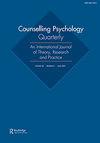积极心理学中的宗教多样性与幸福感:对临床实践的启示
IF 1.5
Q3 PSYCHOLOGY, APPLIED
引用次数: 2
摘要
积极心理学作为一门旨在促进人类福祉的分支学科,在过去的三十年中取得了显著的发展。迄今为止,积极心理学的临床应用倾向于推动对幸福构成的更广义、更普遍的理解。我们在本文中主张,应该更多地注意对福祉的更具体的理解,特别是那些来自宗教传统的理解。我们从四种不同的宗教传统中总结了幸福的愿景,同时强调了将这些理解与心理治疗背景下的临床方法相结合的可能性。对于每一种宗教传统,我们还描述了案例,以阐明在与来自不同宗教背景的客户合作时治疗的可能性。文章最后对宗教传统中关于幸福概念的分歧点进行了扩展讨论,并对积极心理学干预中对幸福的普遍和特殊理解的优点和实际需求进行了评论。本文章由计算机程序翻译,如有差异,请以英文原文为准。
Religious diversity and well-being in positive psychology: implications for clinical practice
ABSTRACT Positive psychology, as a subdiscipline oriented to promoting human well-being, has grown significantly as a field over the past thirty years. To date, clinical applications in positive psychology have tended to advance more generalized, universal understandings of what constitutes well-being. We assert in this article that greater attention ought to be paid to more particular understandings of well-being, especially those emerging from religious traditions. We summarize visions of well-being from four different religious traditions, while highlighting possibilities for integrating understandings of these with clinical approaches in psychotherapeutic contexts. For each religious tradition, we also describe case examples to elucidate therapeutic possibilities when working with clients from diverse religious contexts. The article concludes with an extended discussion concerning points of divergence among religious traditions’ conceptions of well-being, along with commentary on the merits and practical demands of integrating universal and particular understandings of well-being in positive psychology interventions.
求助全文
通过发布文献求助,成功后即可免费获取论文全文。
去求助
来源期刊

Counselling Psychology Quarterly
PSYCHOLOGY, APPLIED-
CiteScore
6.20
自引率
6.70%
发文量
30
期刊介绍:
Counselling Psychology Quarterly is an international interdisciplinary journal, reporting on practice, research and theory. The journal is particularly keen to encourage and publish papers which will be of immediate practical relevance to counselling, clinical, occupational, health and medical psychologists throughout the world. Original, independently refereed contributions will be included on practice, research and theory - and especially articles which integrate these three areas - from whatever methodological or theoretical standpoint. The journal will also include international peer review commentaries on major issues.
 求助内容:
求助内容: 应助结果提醒方式:
应助结果提醒方式:


